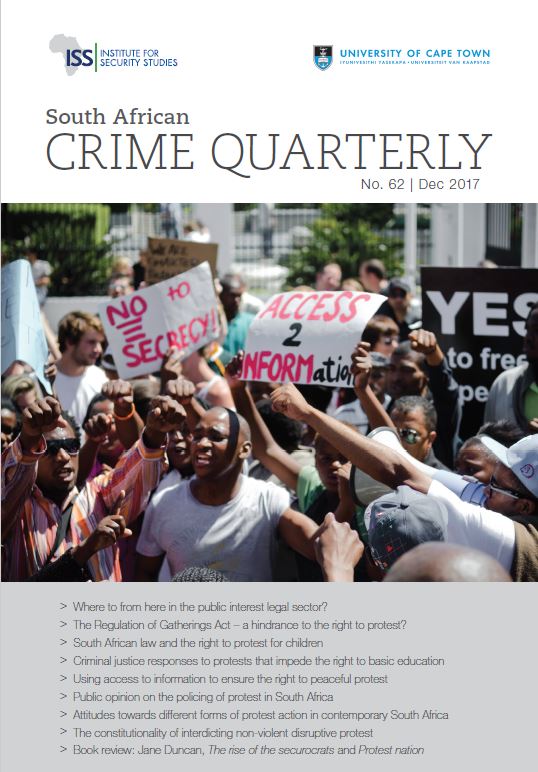Minding the Protest: Attitudes towards different forms of protest action in contemporary South Africa
DOI:
https://doi.org/10.17159/2413-3108/2017/i62a3041Abstract
This article focuses on providing new insights into the nature of public opinion about protest action in South Africa. Since the mid-2000s the country has experienced one of the world’s highest levels of popular protest and strike action, combined with the recent resurgence of an active student protest movement. Sociological research into these protests has suggested that they represent distinct phenomena and that local protests have assumed plural forms that cut across simple violent/non-violent and orderly/disorderly binary distinctions. Despite the rapid growth of literature on South African protests, surprisingly little is known about public opinion relating to various forms of protest. Consequently, this article aims to examine differences with regard to the acceptability, perceived effectiveness and participation in respect of three categories of protest action, namely orderly, disruptive and violent protests. The article uses data from a protest module included as part of the 2016 round of the South African Social Attitudes Survey, a nationally representative series conducted annually by the Human Sciences Research Council. Apart from determining the nature and extent of variation in opinion regarding the three types of protest action on aggregate, the article explores patterns of similarity and differentiation across societal groups, based on class, age, race, gender and geography. Finally, we analyse how and for whom perspectives on the three forms of protest have changed over the course of a generation by drawing on functionally equivalent data collected in 1995. The article concludes by reflecting on whether the evidence supports key hypotheses regarding the ‘rebellion of the poor’1 in the country.
Downloads
Downloads
Published
Issue
Section
License
Copyright (c) 2017 Author and Institute for Security Studies

This work is licensed under a Creative Commons Attribution 4.0 International License.
SACQ is licenced under a creative commons licence (CC BY) that allows others to distribute, remix, tweak, and build upon your work, even commercially, as long a they give appropriate credit, provide a link to the license, and indicate if changes were made. They may do so in any reasonable manner, but not in any way that suggests the licensor endorses you or your use.
Copyright for articles published is vested equally between the author/s, the Institute for Security Studies and the Centre of Criminology (UCT).
How to Cite
Metrics

- Citations
- Citation Indexes: 3
- Usage
- Full Text Views: 657
- Abstract Views: 37
- Captures
- Readers: 37



.png)